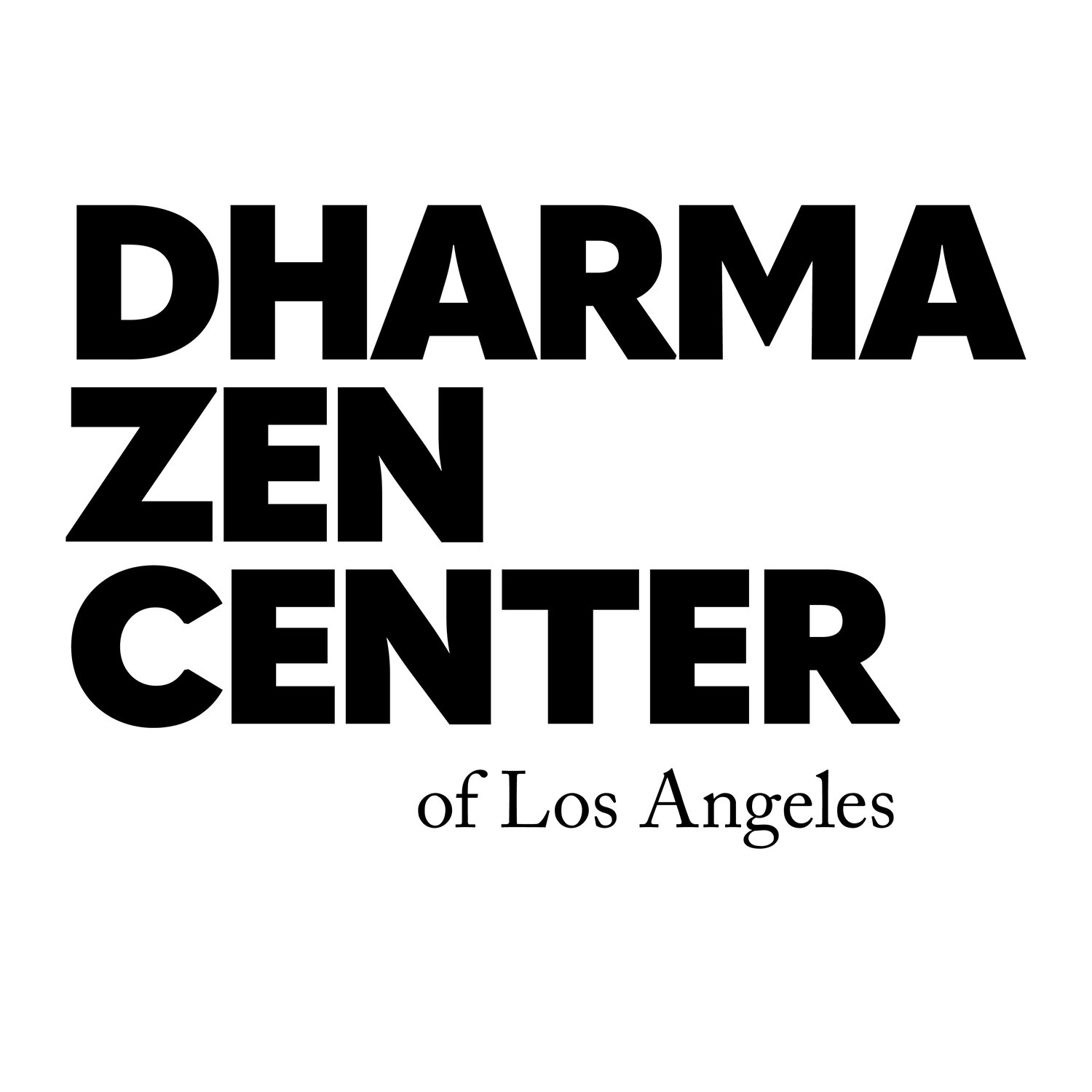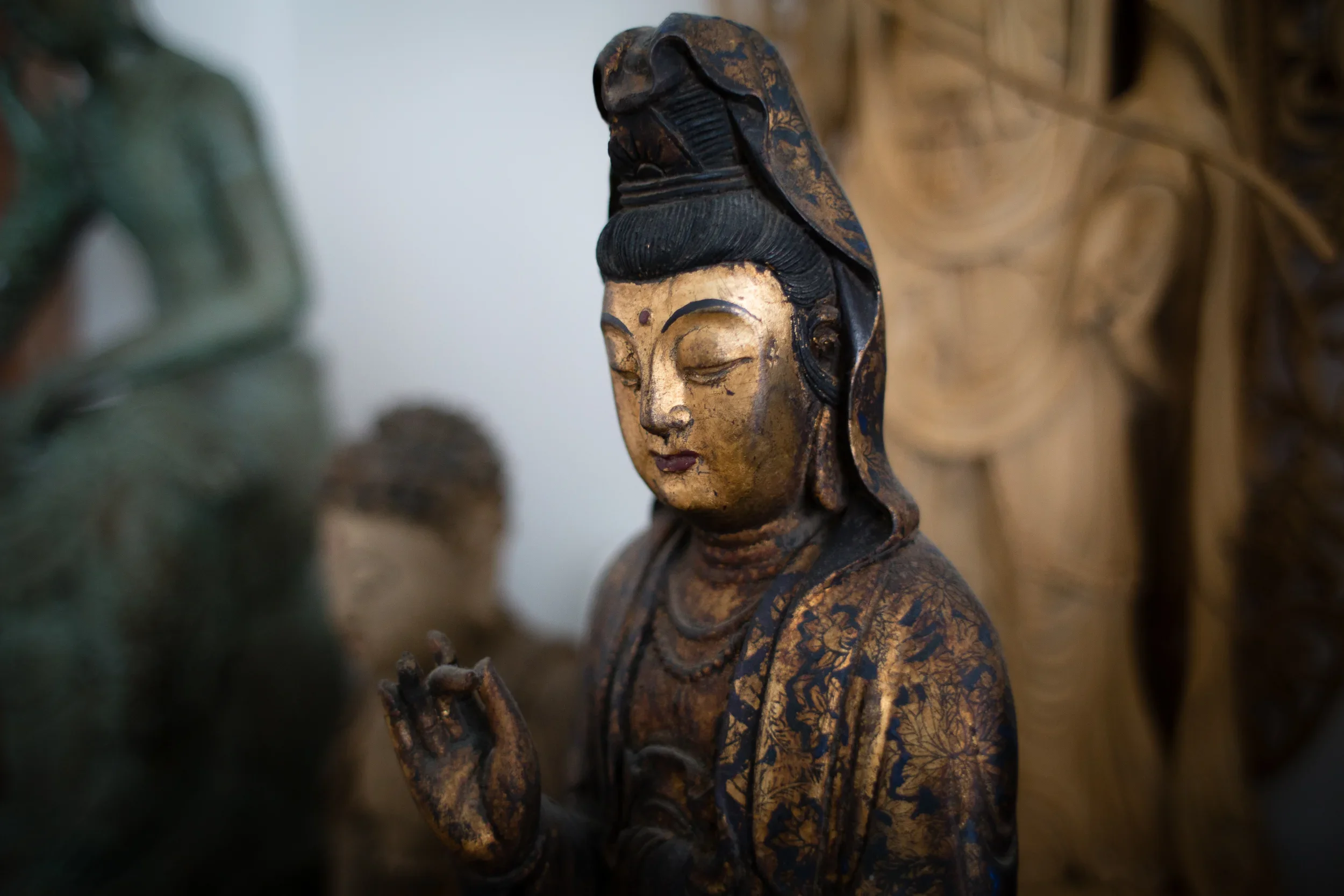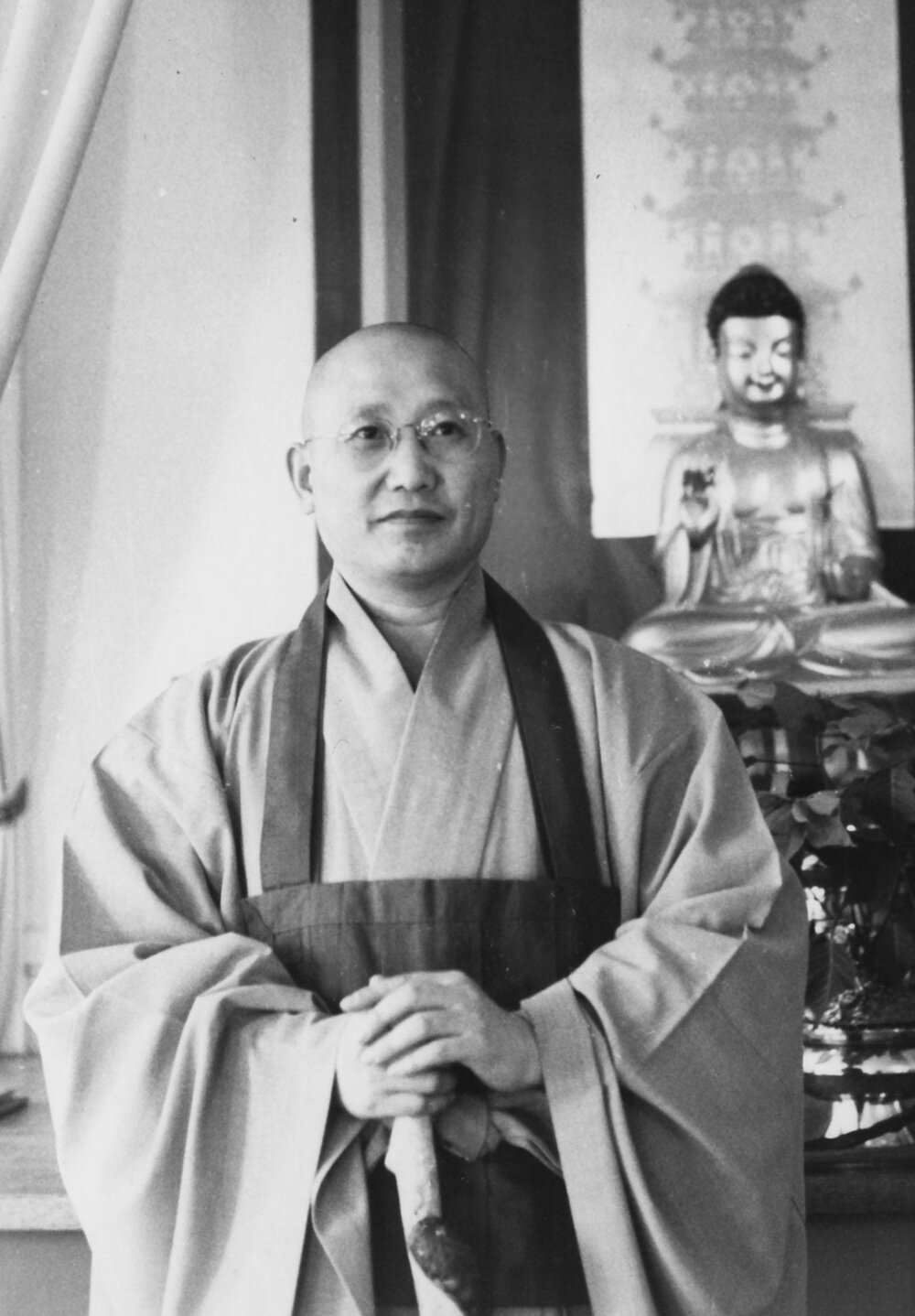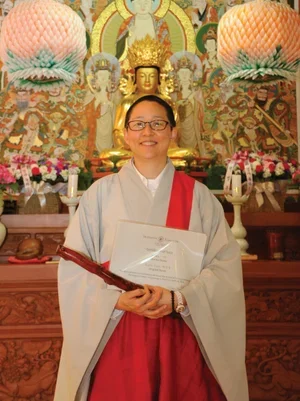“Among all you people here today there’s not a single one who’s an unenlightened being. Everyone here is a buddha. So listen carefully!
“What you all have from your parents innately is the Unborn Buddha Mind alone. There’s nothing else you have innately. This Buddha Mind you have from your parents innately is truly unborn and marvellously illuminating. That which is unborn is the Buddha Mind; the Buddha Mind is unborn and marvellously illuminating, and, what’s more, with this Unborn, everything is perfectly managed. The actual proof of this Unborn which perfectly manages [everything] is that, as you’re all turned this way listening to me talk, if out back there’s the cawing of crows, the chirping of sparrows or the rustling of the wind, even though you’re not deliberately trying to hear each of these sounds, you recognize and distinguish each one. The voices of the crows and sparrows, the rustling of the wind - you hear them without making any mistake about them, and that’s what’s called hearing with the Unborn.
“In this way, all things are perfectly managed with the Unborn. This is the actual proof of the Unborn. Conclusively realize that what’s unborn and marvellously illuminating is truly the Buddha Mind, straightaway abiding in the Unborn Buddha Mind just as it is, and you’re a living tathagata (another name for a Buddha), from today forever after. Since, when you realize conclusively, you abide like this in the Buddha Mind from today on, my school is called the School of Buddha Mind.
“Well, then, while you’re all turned this way listening to me talk, you don’t mistake the chirp of a sparrow out back for the caw of a crow, the sound of a gong for that of a drum, a man’s voice for a woman’s, an adult’s voice for a child’s - you clearly recognize and distinguish each sound you hear without making any mistake. That’s the marvellously illuminating dynamic function. It’s none other than the Buddha Mind, unborn and marvellously illuminating, the actual proof of the marvellously illuminating [nature of the Buddha Mind].
“I doubt there’s anyone among the people here now who’d say: ‘I heard [what I did] because I was deliberately trying to hear it.’ If anyone says he did, he’s a liar. Wondering, ‘What’s Bankei telling us?’ All of you are turned this way, intent only on hearing what I’m saying; no one’s deliberately trying to hear the various sounds coming from out back. That’s why, when all of a sudden these sounds appear and you recognise and distinguish them, hearing them without any mistake, you’re hearing with the Unborn Buddha Mind. Nobody here can claim he heard these sounds because he’d made up his mind beforehand to listen for them when they were made. So, in fact, you’re listening with the Unborn.
Everyone who conclusively realises that what is born and marvellously illuminating is truly the Buddha Mind abiding in the Unborn Buddha Mind, is a living tathagata from today forever after.”
Bankei Zen: translations from the Record of Bankei by Yoshito S Hakeda & Peter Haskel; pub. New York: Grove Weidenfel 1989












